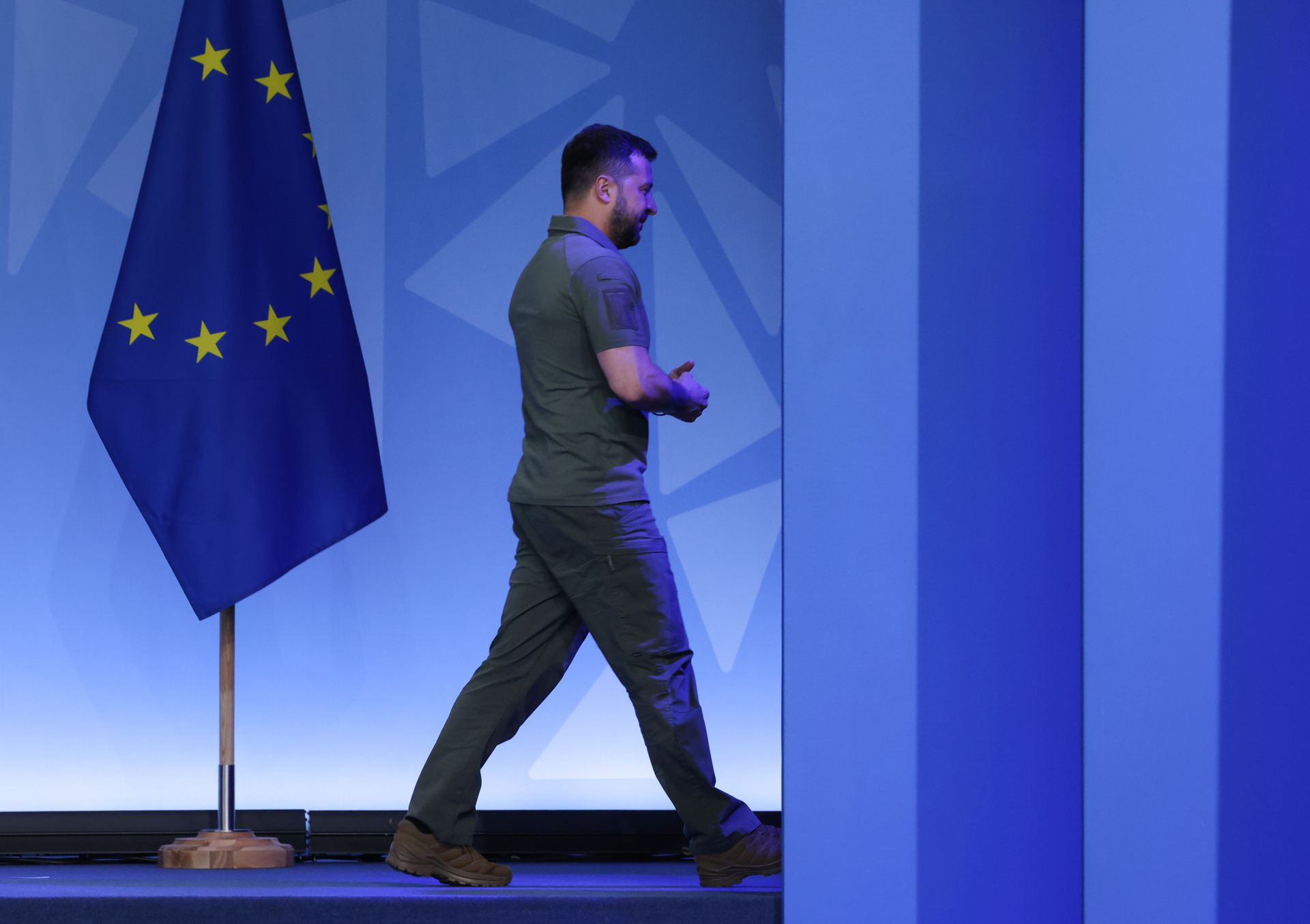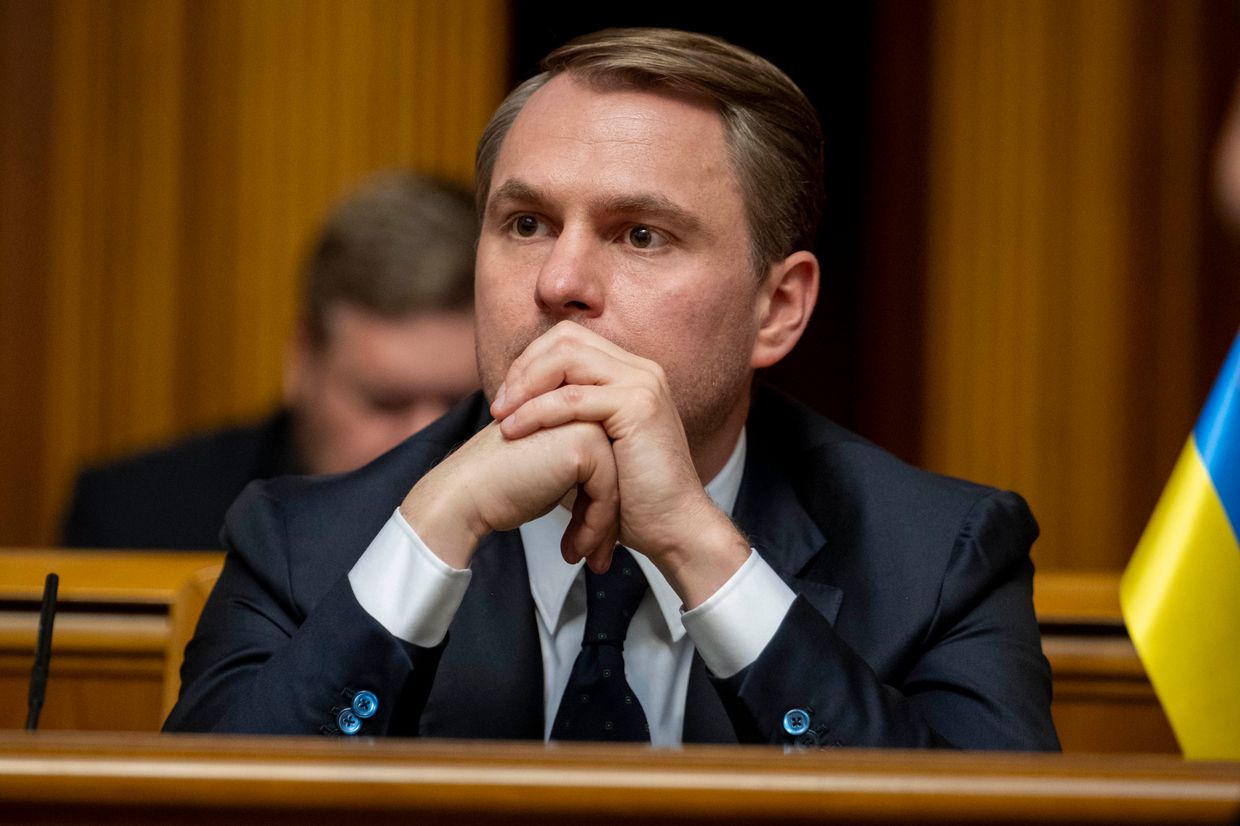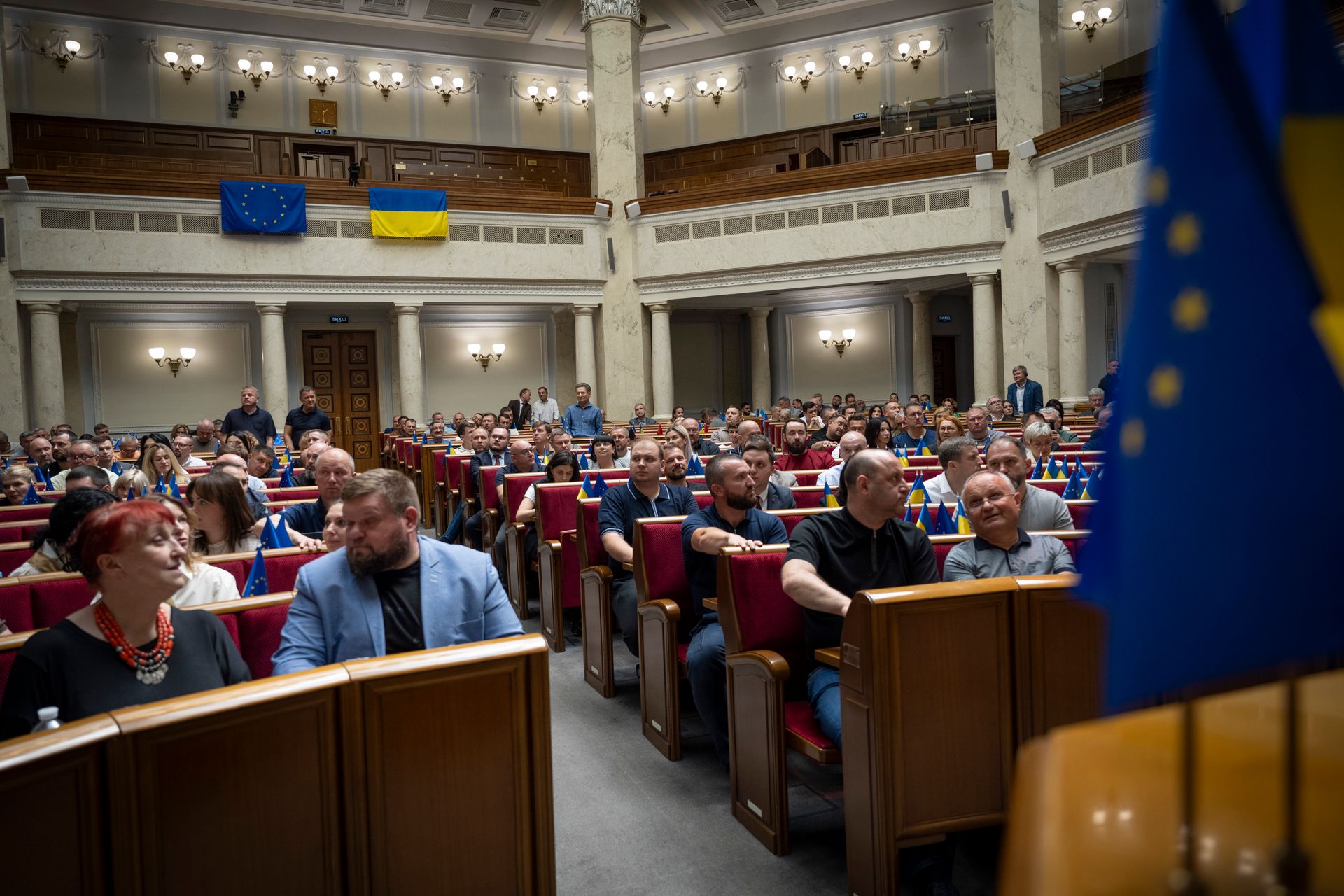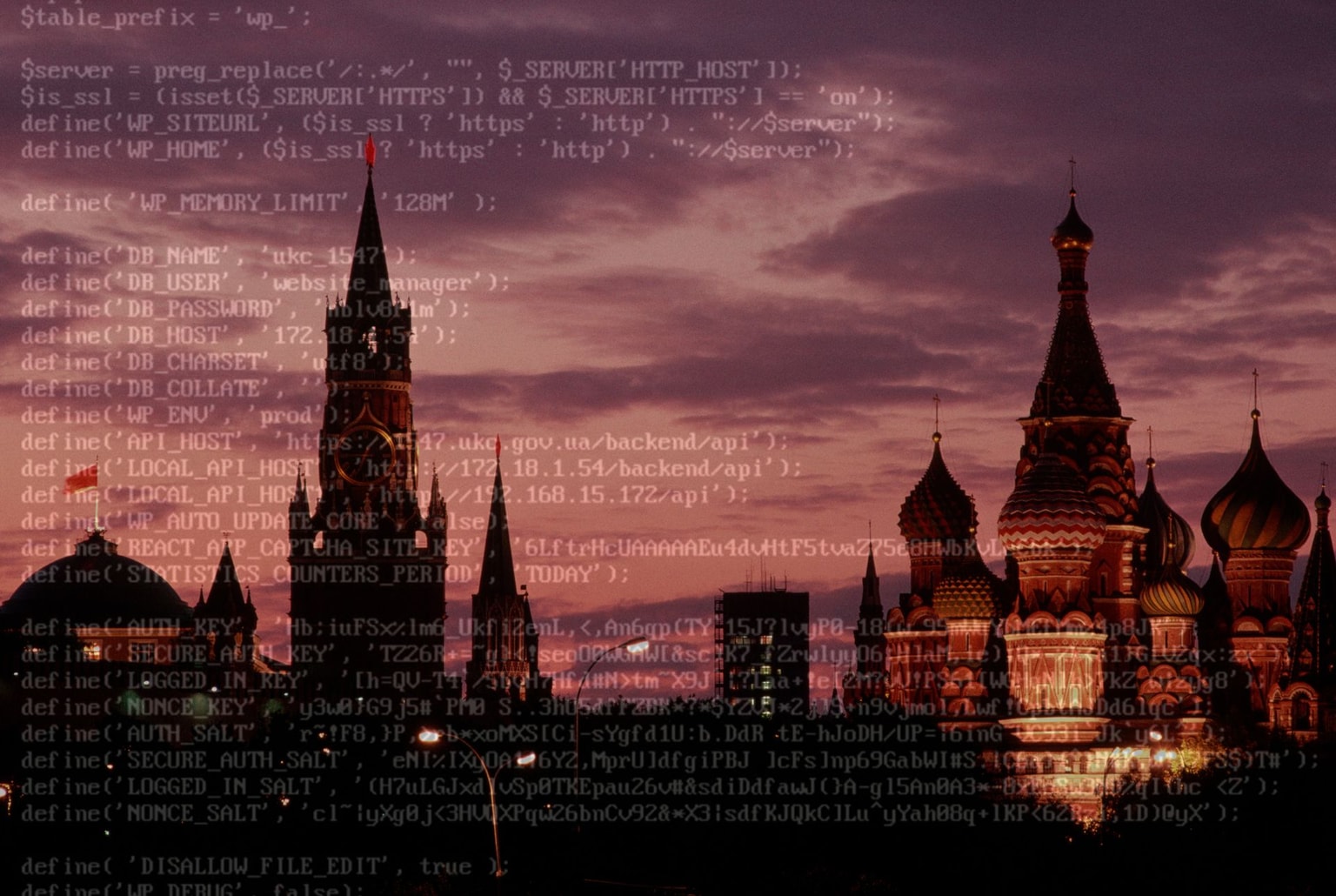Zelensky restores anti-corruption agencies’ independence — but leaves one key change intact

Protesters hold placards during a demonstration in Kyiv, Ukraine, on July 22, 2025, calling on the president to veto a law that reduces the powers of the National Anti-Corruption Bureau (NABU) and the Specialized Anti-Corruption Prosecutor’s Office (SAPO). (Tetiana Dzhafarova / AFP via Getty Images)
As President Volodymyr Zelensky was restoring the independence of anti-corruption agencies days after he himself took that independence away, one crucial amendment was not overturned.
On July 22, Zelensky signed a bill that subordinated the country's anti-corruption agencies to the prosecutor general, a political appointee, and eliminated prosecutors' procedural independence as a side effect.
Following protests in Kyiv and pressure from Brussels, the president on July 31 signed a new bill that restored the independence of the National Anti-Corruption Bureau (NABU) and the Special Anti-Corruption Prosecutor's Office (SAPO).
The changes that eliminated the independence of prosecutors other than those from SAPO were not reversed. Experts say that these amendments are at odds with the European Union's requirements for countries attempting to join the union.
The President's Office and the Prosecutor General's Office did not respond to requests for comment.
Prosecutors' independence
The institutional and procedural independence of prosecutors from the prosecutor general is supposed to shield them from political or any other influence — similarly to safeguards that exist for judges.
"A prosecutor must be independent (from the prosecutor general)," Zlata Simonenko, a criminal lawyer at the Ukrainian law firm Sayenko Kharenko, told the Kyiv Independent. "The prosecutor general is just an administrative job. He is not the head of a puppet theater who can arrange the puppets however he pleases."
"They gave the prosecutor general more powers that are not limited and not regulated. This creates opportunities for abuse."
Such independence is in line with European standards, and Ukraine has been formally introducing this principle since the 1990s.
Changes made to the Criminal Procedure Code in 2012 and pro-Western reforms following the 2014 EuroMaidan Revolution, which ousted pro-Russian President Viktor Yanukovych, sought to strengthen prosecutors' independence on paper.
Two weeks ago, this was reversed.

Clauses of the law
The law destroys the institutional independence of prosecutors. The prosecutor general can fire top prosecutors by liquidating or restructuring a unit within the Prosecutor General's Office.
The law also enables the prosecutor general to take cases away from prosecutors for a check and to give orders to investigators, bypassing the prosecutor in charge of the case.
Previously the prosecutor general could fire prosecutors or take away criminal cases, but it was difficult due to procedural safeguards, Simonenko told the Kyiv Independent.
Specifically, prosecutors could be fired based on disciplinary violations, and cases could be taken away if an investigation was deemed ineffective.
Serhiy Gorbatuk, a former top prosecutor who is now serving in the army, said that even before the law, prosecutors had no de facto independence.
Prosecutor generals routinely fired prosecutors and took away cases from them in violation of the law, he told the Kyiv Independent.
"The liquidation and restructuring of departments has always been the main method of punishing disloyal (prosecutors)," he added.
Gorbatuk, who investigated crimes committed against protesters during the 2014 EuroMaidan Revolution, was one of Ukraine's most outspoken critics of the system. He publicly accused ex-Prosecutor General Yury Lutsenko, his boss, of violations and was fired after a conflict with his successor, Ruslan Riaboshapka, in 2019.
Gorbatuk told the Kyiv Independent that his department was the only one that tried to implement prosecutorial independence in practice.
He argued that the new law aggravates the situation and makes prosecutors even more dependent on the prosecutor general.

"They gave the prosecutor general more powers that are not limited and not regulated," he said. "This creates opportunities for abuse."
Vitaly Tytych, a criminal lawyer and ex-head of the civic watchdog Public Integrity Council, also argued that prosecutors' independence existed only on paper before the law was passed, and in reality, prosecutors were not independent. He told the Kyiv Independent that he believes any law is unlikely to protect prosecutors if they lack integrity.
The law also allows the Prosecutor General's Office to appoint anyone with a law degree and legal experience to a top prosecutorial job without a competitive selection procedure during martial law.
Ironically, lower-level prosecutors will still be appointed based on competitive selection procedures.
This clause also contradicts Ukraine's aspirations to join the EU. According to the country's EU accession requirements, it is expected to make competitive selection procedures for top prosecutorial jobs mandatory in 2026.













